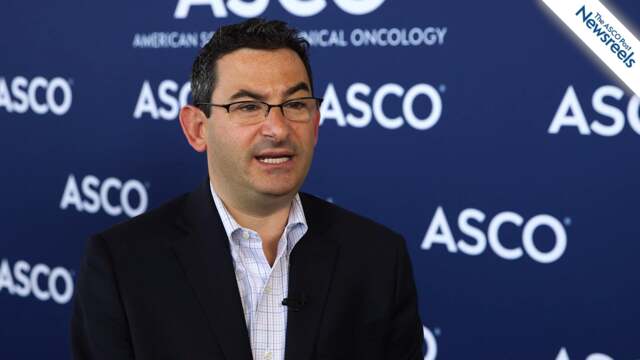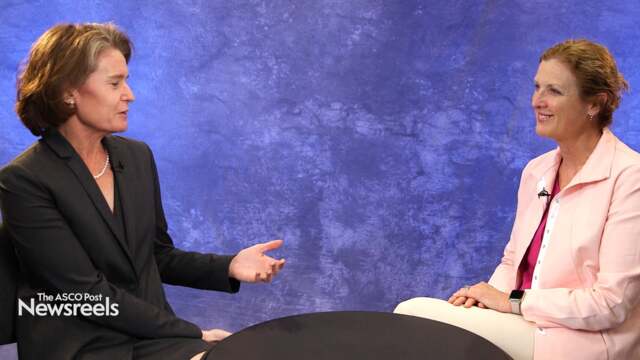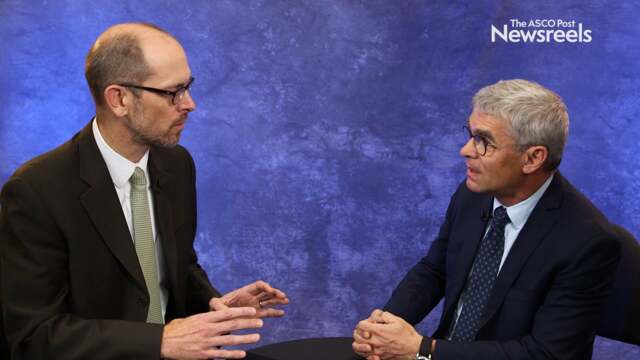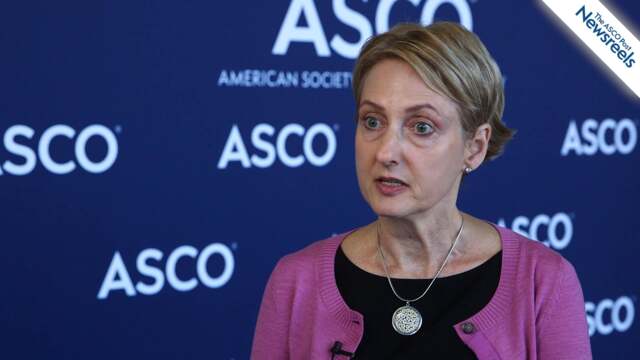Gabriel N. Hortobagyi, MD, on Breast Cancer Staging: New and Important Changes
2018 ASCO Annual Meeting
Gabriel N. Hortobagyi, MD, of The University of Texas MD Anderson Cancer Center, discusses the 8th edition of the TNM staging system, which includes prognostic stage groups based on clinical and pathologic factors combined with grade and hormone and HER2 status.
Jeremy S. Abramson, MD, of the Massachusetts General Hospital, discusses study findings on lisocabtagene maraleucel in relapsed or refractory aggressive NHL (Abstract 7505).
Lee S. Schwartzberg, MD, of West Cancer Center, reports on the progress of the ACCC Immuno-Oncology Institute to speed adoption of immunotherapeutics in community practices.
Elizabeth A. Mittendorf, MD, PhD, of Dana-Farber/Brigham and Women’s Cancer Center, and Lisa A. Carey, MD, of the University of North Carolina, discuss the impact of new phase III findings on chemoendocrine treatment vs endocrine treatment alone in hormone receptor–positive, HER2-negative, node-negative breast cancer (Abstract LBA1).
Michael J. Overman, MD, of The University of Texas MD Anderson Cancer Center, and François Quenet, MD, of the Institut Régional du Cancer de Montpellier, discuss phase III study findings on hyperthermic intraperitoneal chemotherapy for colorectal peritoneal carcinomatosis (Abstract LBA3503).
Laurie Helen Sehn, MD, MPH, of the British Columbia Cancer Centre for Lymphoid Cancer, discusses phase II study findings on polatuzumab vedotin with bendamustine and rituximab in relapsed or refractory follicular lymphoma and diffuse large B-cell lymphoma (Abstract 7507).





